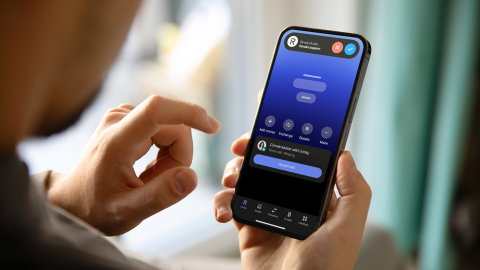Fintech giant Revolut is introducing in-app calls to help retail customers quickly identify and report impersonation scams.
The new feature aims to address the widespread issue of scammers posing as bank representatives to trick victims into transferring money or sharing sensitive information. By integrating this feature directly within the app, Revolut creates a secure channel for customers to communicate with support staff, making it difficult for criminals to replicate. The majority of customer support calls to retail users will now take place within the app, with plans to extend the feature to business customers in the near future.
Woody Malouf, Revolut’s head of financial crime, stated, “We know that the most effective way to stop a scam is to break the spell as fast as possible, before any money has been transferred. That’s why we are providing our customers with innovative solutions to help them quickly uncover scams.”
Malouf advised, “The majority of our calls to individuals will be through our app, so if you receive an unexpected call regarding your personal account from someone claiming to be Revolut, hang up and verify their identity through the app. Communicating within the app ensures customers can be 100% sure they are speaking with Revolut and not a fraudster.”
Revolut reports that instances of impersonation scams targeting its customers have reached their lowest point in nearly two years, despite the company experiencing significant growth in its customer base. With 50 million customers globally—including 10 million in the UK—Revolut has previously faced a substantial number of fraud complaints.
In October, the BBC highlighted that Revolut received more fraud reports in the previous financial year than any major High Street bank, with nearly 10,000 complaints directed to Action Fraud, the UK’s leading agency for reporting fraud and cybercrime. The firm recently obtained a provisional UK banking license in July.
